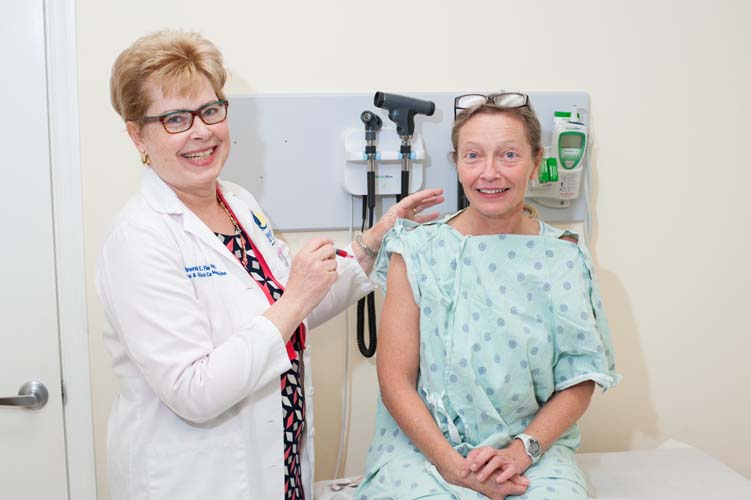
When the FDA approved GlaxoSmithKline’s new Shingrix vaccine for shingles last month, it also took the extraordinary step of recommending it replace the existing Zostavax shingles vaccine.
A tsunami of good press promptly followed.
The New York Times quoted Dr. Rafael Harpaz, a veteran shingles researcher at the Centers for Disease Control, as saying “this really is a sea change” in the prevention of shingles, and Dr. William Schaffner, a preventive disease specialist at the Vanderbilt University School of Medicine, who claimed “this vaccine has spectacular initial protection rates in every age group. The immune system of a 70- or 80 year-old responds as if the person were only 25 or 30.”
The Washington Post added, “Shingrix is 97 percent effective against shingles for those 50 to 59 years old, compared to about 70 percent for Zostavax, data show. For those in their 60s, the new vaccine is 97 percent effective, compared to 64 percent for Zostavax. For those in their 70s, Shingrix is 91 percent effective, compared to about 41 percent for Zostavax.”
Not to be outdone, the Times then ran another article a few days later with the headline: “No excuses, people: get the new shingles vaccine.”
“I think it may turn out to be a great vaccine,” says Dr. Brenda Field at Barefoot Bay Internal Medicine and the Steward Health Group at Sebastian River Medical Center Field. She tempers her enthusiasm by adding, “I think it boils down to a little bit about how cautious you are about adopting early things and how much risk you personally feel you are at for shingles.
“I think if the immunity [from Shringrix] holds up so that maybe we can vaccinate people once or twice in their senior years – like from say 60 and up – I think that would be fabulous,” but, as of now, that is still an unknown.
Ever the pragmatist, Field continues by explaining, “How much capital I’m going to expend trying to push my patients into the new shingles vaccine remains to be seen depending on how the data comes out. I’ll expend a lot of capital trying to push them to get their flu and pneumonia shots, because those are killers. Shingles is not a killer – though it may make you wish you were [dead].”
And then there’s the local chatter factor.
As Field candidly explains, “If it turns out that the first 50 people here in Barefoot Bay get the [new] shots and then feel really crappy for three or four days, then it’s not going to be well adopted. And it doesn’t really matter what the commercials say. Word of mouth is going to trump that.”
So what, exactly, is shingles?
It is an outbreak of the varicella-zoster virus that causes chicken pox. The virus can lay dormant inside the nerve tissue of the spinal cord or brain for decades before re-activating itself and causing an outbreak of shingles – which means anyone who has ever had chicken pox can develop shingles.
While rarely life-threatening, shingles can pack a powerful, painful punch with rashes, skin blistering and infections, nerve damage, vision loss and even inflammation of the brain along with facial paralysis and balance problems.
The Mayo clinic reports that “shingles is most common in people older than 50 and that risk increases with age. Some experts estimate that half the people 80 and older will have shingles.”
While Field – and the CDC – are quick to point out there are several antiviral medications now available to help treat shingles after it flares up, Shingrix is the first new vaccine approved by the FDA for preventing it in more than a decade.
But, since it’s a live (but weakened version) of the varicella-zoster virus, anyone receiving it must have an immune system that’s working well.
Even with the old Zostavax, says Field, “I don’t even think about vaccinating my 90+ year olds with it because the chance that they’re going to have enough of an immune response to be helpful to them is very low,” and she doesn’t want to “open the door” for the problems that could pose.
In the end, some enthusiasm for Shingrix does surface as Field concludes by saying, “I do think it’s very exciting. I think if we actually have a better shingles vaccine that will be a wonderful thing. I’ll get my information together for my patients and help them make their own best choices and go from there. Hopefully I can say [the new vaccine] is wonderful thing that lives up to the promise it has.”
Dr. Brenda Field is with the Sebastian River Medical Center and the Steward Health Group. Her office is at Barefoot Bay Internal Medicine, 8000 Ron Beatty Blvd., Suite A-3 in Barefoot Bay. The phone number is 772-664-1388.



